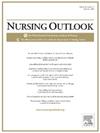教育、赋权和提升护理声音:护理信息学领导者对护理人工智能发展道路的看法
IF 3.7
2区 医学
Q1 NURSING
引用次数: 0
摘要
随着人工智能(AI)迅速改变医疗保健,迫切需要了解如何将人工智能周到地整合到护理实践中,以支持临床医生,减轻负担并加强患者护理。目的了解护理信息学领导者对人工智能在护理中的现状和未来的看法。方法对20名国内护理信息学专家进行定性研究。“不采用、放弃、扩大、传播、可持续性”(NASSS)框架使用定向内容分析指导数据收集和分析。与会者强调了人工智能对护士以及护士对技术供应商和人工智能开发商的价值不明确。他们确定了影响人工智能在护理中的整合的护理特定因素(倦怠、教育和态度)和组织特定因素(领导力和文化)。他们强调了教育、建立理想的护士与人工智能伙伴关系以及利用人工智能如何缓解职业倦怠。教育、赋权和提高护理声音(“三个e”)可以引导护理专业在人工智能时代蓬勃发展。本文章由计算机程序翻译,如有差异,请以英文原文为准。
Education, empowerment, and elevating nursing voices: Nursing informatics leaders’ perspectives on the path forward with artificial intelligence in nursing
Background
As artificial intelligence (AI) is rapidly transforming healthcare, there is a critical need to understand how AI can be thoughtfully integrated into nursing practice to support clinicians, reduce burden, and enhance patient care.
Purpose
We aimed to understand nursing informatics leaders’ perspectives on AI's current and future state in nursing.
Methods
We conducted a qualitative study with 20 national experts in nursing informatics. The Non-Adoption, Abandonment, Scale-up, Spread, Sustainability (NASSS) framework guided data collection and analysis using directed content analysis.
Findings
Participants highlighted the unclear value of AI to nurses and of nurses to technology vendors and AI developers. They identified nursing-specific (burnout, education, and attitudes) and organization-specific (leadership and culture) factors that influence AI’s integration in nursing. They highlighted how education, establishing ideal nurse–AI partnerships, and leveraging AI, may alleviate burnout.
Discussion
Education, empowerment, and elevating nursing voices (“three e’s”) can guide the nursing profession to thrive in the era of AI.
求助全文
通过发布文献求助,成功后即可免费获取论文全文。
去求助
来源期刊

Nursing Outlook
医学-护理
CiteScore
6.20
自引率
7.00%
发文量
109
审稿时长
25 days
期刊介绍:
Nursing Outlook, a bimonthly journal, provides innovative ideas for nursing leaders through peer-reviewed articles and timely reports. Each issue examines current issues and trends in nursing practice, education, and research, offering progressive solutions to the challenges facing the profession. Nursing Outlook is the official journal of the American Academy of Nursing and the Council for the Advancement of Nursing Science and supports their mission to serve the public and the nursing profession by advancing health policy and practice through the generation, synthesis, and dissemination of nursing knowledge. The journal is included in MEDLINE, CINAHL and the Journal Citation Reports published by Clarivate Analytics.
 求助内容:
求助内容: 应助结果提醒方式:
应助结果提醒方式:


